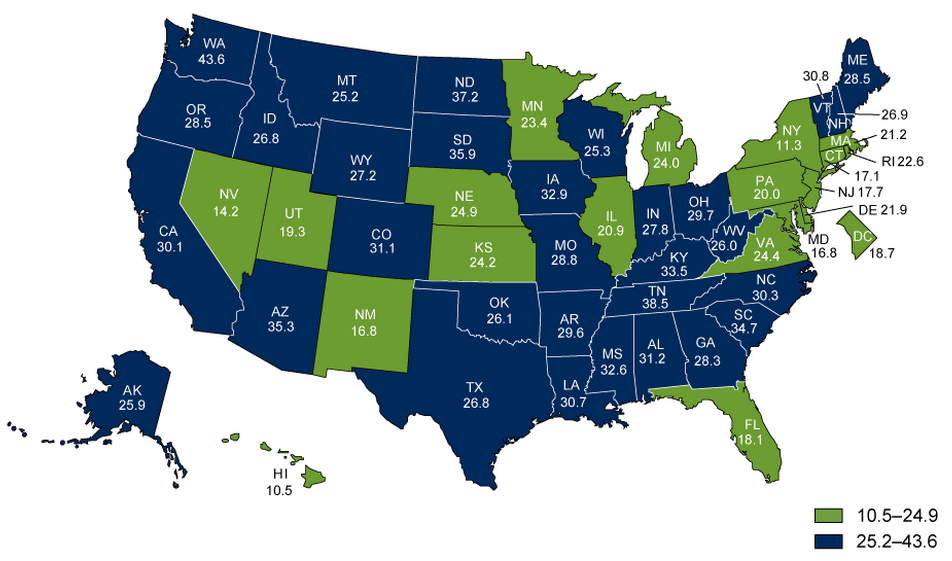Betaine gets its name from beets, which are a very good source of it. So are wheat bran and quinoa, but rare is the person who drinks wheat bran or quinoa juice.* Beet juice, on the other hand, is regularly consumed in Poland as part of a very typical Polish soup, barszcz, a clear soup made from beets and chicken stock. It's strained at the end, so it is rather more like beet tea than typical borscht. This seems like an highly efficient way to obtain betaine, which is water soluble, from the beets.
Upon learning about betaine's role in converting homocysteine into methionine, I remembered that Poles eat barszcz regularly and thought, "I wonder if they have less autism?" The answer to that question appears to be dramatically in the affirmative:
Autism in Poland in comparison to other countries
Received 16 January 2015, Accepted 18 March 2015, Available online 22 April 2015
Material and methods
Statistical data provided by the Polish National Health Fund Headquarters in June 2013 and data pooled from international journal articles were analyzed in detail.
Results and discussion
The National Health Fund reported that 13 261 individuals up to 18 years of age received health services for autism and related disorders in Poland in 2012. This is a prevalence rate of 3.4 cases per 10 000 individuals. Incidence rates vary in different Polish regions, with the highest rates recorded in the following voivodships: warmińsko-mazurskie (6.5 cases per 10 000 individuals), śląskie (5.0), and pomorskie (4.6). The provinces with lowest rates were podlaskie (2.1), małopolskie (1.9), zachodniopomorskie (1.9), and łódzkie (1.8). These rates are far lower than those in European countries (20 per 10 000) and United States (200 per 10 000) epidemiological surveys.
Conclusions
Information on the prevalence of autism in Poland and in the world remains unclear and imprecise. This results from global differences in diagnostic criteria. There is urgent need to develop global standards for the diagnosis of autism in children.
I recognize the possibility that the Poles might be hugely underdiagnosing autism, but it seems unlikely that it is by
a factor of 50 compared to the USA. Poland is part of the EU, provides free
health care to all young children, and has strong economic and social ties to
countries such as Great Britain and Germany.
My nephew is half-Polish, though born and raised in the USA,
and he has high functioning autism. Would he have been better off raised in
Poland? I look at the statistics above and suspect so. Something
environmental--most likely dietary, for Poland has a lot of pollution from
Communist days that they're still cleaning up--is causing the USA to see
possibly 50 times the autism prevalence of Poland.
One way or another, homocysteine must get transformed to
methionine to support proper DNA methylation. By consuming so much beet juice,
it appears the Poles give substantial dietary support to the betaine-dependent
pathway.
I suggest, in light of all I've learned over the past few months, that the biggest faults in the US diet with respect to autism are the fortification of food with folic acid (instead of methylfolate or folinic acid) and cyanocobalamin (cobalamin binds more to cyanide than I think it should if we're to get enough useable cobalamin) together with the absence of sufficient dietary betaine and zinc (zinc is part of enzymes in the homocysteine-to-methionine pathways, and zinc levels tend to be lower where there is autism). Making mistakes in facilitating the folate and methionine cycles can cause much else to go wrong with DNA methylation, and we'll never find specific genes at fault for autism because we've then entered the realm of epigenetics.
I suggest, in light of all I've learned over the past few months, that the biggest faults in the US diet with respect to autism are the fortification of food with folic acid (instead of methylfolate or folinic acid) and cyanocobalamin (cobalamin binds more to cyanide than I think it should if we're to get enough useable cobalamin) together with the absence of sufficient dietary betaine and zinc (zinc is part of enzymes in the homocysteine-to-methionine pathways, and zinc levels tend to be lower where there is autism). Making mistakes in facilitating the folate and methionine cycles can cause much else to go wrong with DNA methylation, and we'll never find specific genes at fault for autism because we've then entered the realm of epigenetics.

